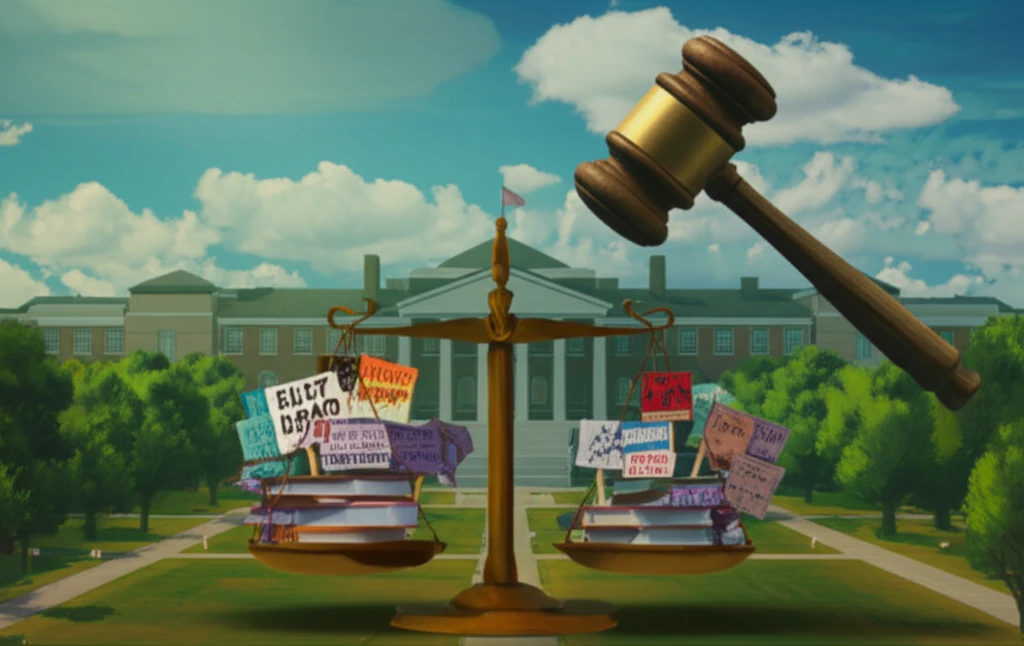
Campus Clash: When Free Speech Rights Collide
"Navigating the complex intersection of academic freedom, employee rights, and disability accommodations on college campuses."
The landscape of legal issues in higher education is constantly evolving. Colleges and universities are grappling with everything from free speech controversies to ensuring accessibility for students with disabilities. These cases often involve delicate balances between individual rights, institutional policies, and legal obligations.
This article delves into recent lawsuits and rulings that highlight some of the key challenges facing colleges today. We'll examine cases involving professors claiming free speech violations, disputes over pro-life postings, and allegations of disability discrimination related to academic appeals and website accessibility.
By understanding the nuances of these legal battles, administrators, faculty, and students can better navigate their rights and responsibilities within the academic environment, promoting a more inclusive and legally sound campus community.
Academic Freedom vs. Employee Speech: Where's the Line?

One recurring issue in higher education is the extent to which a professor's speech is protected by the First Amendment. Courts have consistently held that public employees, including professors at state colleges, only have free speech rights when they are speaking as private citizens on matters of public concern. This distinction is crucial.
- Public employee speech is only protected when acting as a private citizen.
- Matters of 'public concern' must be of general interest to the community.
- Actions related to official duties are generally not protected speech.
Promotions, Postings, and Potential Retaliation
In Crawford v. Columbus State Community College, a professor alleged that the college retaliated against him for posting pro-life literature on campus by failing to promote him. The court found that while the college presented legitimate reasons for not promoting the professor, the plaintiff had presented enough evidence to suggest that long-standing animus played a role, warranting a jury trial.
The case of disability discrimination on campus also came to light where OCR found that students with visual impairments must be provided opportunities to access the same information, computer-based interactions, and services as sighted students. Voluntary resolution can help institutions avoid violations.
These cases serve as reminders that colleges must be vigilant in ensuring that employment decisions are based on legitimate, non-discriminatory factors and that students with disabilities have equal access to campus resources and information.
